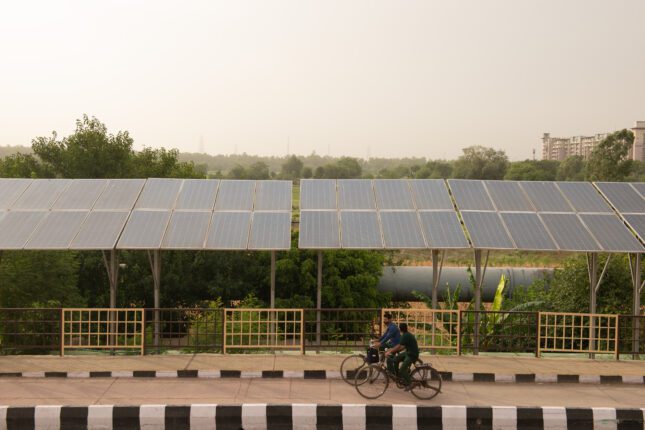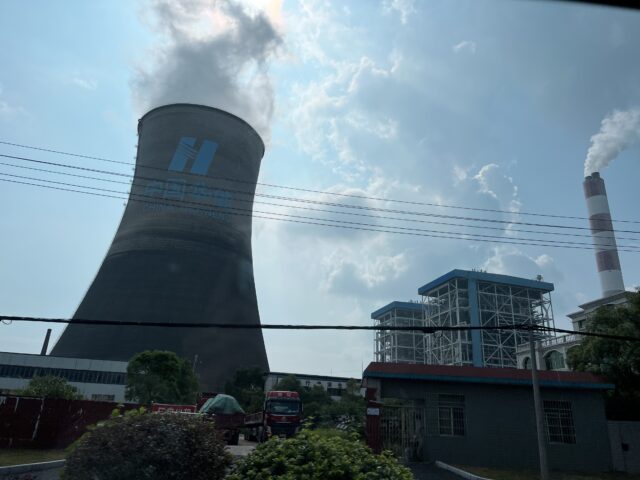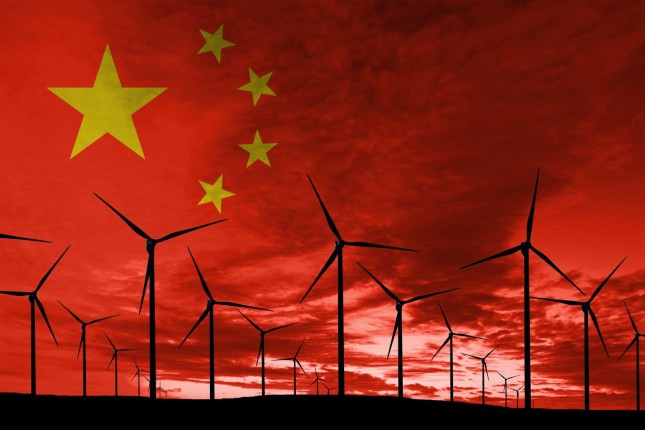-
Environmental Security Weekly Watch: October 6-10, 2025
›A window into what we’re reading at the Stimson Center’s Environmental Security Program
“Intractable” systemic problems mean carbon offsets fail to cut global heating (The Guardian)
A recent review of 25 years of evidence found that carbon credit quality issues stem from deep-seated structural flaws, and not isolated cases of fraud. Researchers point to four major flaws that undermine most carbon offset projects. The worst problems include issuing credits for already-planned projects, impermanent solutions (forests that later burn), incidences of leakage (such as protecting one forest area while pushing logging elsewhere), and double-counting which allows both seller and buyer to claim the same emission reduction.
-
Photo Essay: Indonesia’s Decarbonization Tipping Point
›China and the Global Energy Transition // China Environment Forum // Guest Contributor // Vulnerable Deltas // February 20, 2025 // By Ulet Ifansasti & Jacob Dreyer -
Can China Fuel Indonesia’s Clean Energy Transition?
›China and the Global Energy Transition // China Environment Forum // Guest Contributor // Vulnerable Deltas // January 30, 2025 // By Jacob DreyerIndonesia’s economy is on a roll. The archipelago nation harbors ambitions for 8% growth a year on its growing strength as an exporter of coal, palm oil, LNG, and stainless steel made from its booming nickel mining industry.
Investments from China are driving this growth—and run the gamut from traditionally dirty industries (mining, steel, and aluminum) to the crown jewels of Chinese clean energy tech: batteries, electric vehicles (EVs), and solar panel production. In 2023, Xinyi Glass, the world’s largest solar PV panel maker, announced an 11.5 billion USD investment in a quartz sand processing plant in Indonesia.
-
Accelerating the Transition: Can the U.S. Support India’s Path to Net Zero?
›
Energy is a bridge that has historically fostered the U.S.-India relationship. The reasons are many. Both economies focus on energy security, climate action, economic cooperation, and technological innovation.
Recent innovations in India offer new challenges and opportunities. The country has rapidly deployed renewable energy (RE) technologies to meet its stated Net Zero targets. This effort has exceeded its promises; 40% of India’s electricity now comes from renewable sources. And the nation’s other ambitious target— installing 450 GW—would triple this existing capacity in less than ten years.
-
ECSP Weekly Watch | July 29 – August 2
›
A window into what we are reading at the Wilson Center’s Environmental Change and Security Program
How One Loss and Damage Fund Bore Fruit (The Guardian)
The Loss and Damage Fund established during the UN COP27 was a monumental breakthrough in the climate finance realm and aimed to provide financial assistance to vulnerable nations impacted by climate change. Such damage can be catastrophic. When Cyclone Freddy hit Malawi in 2023, it killed 1,200 people and displaced 659,000 more. The estimated economic loss exceeded $1 billion, and it landed especially hard on farmers—including the women who make up more than 70% of Malawi’s agricultural workforce.
-
Search for a Just Transition in China’s Shift Away from Coal
›In 2023, I embarked on a journey with a group of energy policy researchers from Beijing to visit several Chinese coal cities. We wanted to understand the implementation of China’s decarbonization policies in the heartland of coal mining. As we drove into a coal-rich town in western Shanxi Province, the narrow roads were filled with loud rumbling coal trucks. Amid soot-streaked buildings, newer homes housed families who were relocated from areas affected by coal mining subsidence. The town’s existence hinged on coal. Yet, this dependency has an expiration date — the local mines will be depleted in 10 to 15 years.
-
ECSP Weekly Watch: April 29 – May 3
› A window into what we are reading at the Wilson Center’s Environmental Change and Security Program
A window into what we are reading at the Wilson Center’s Environmental Change and Security ProgramEnvironmental Prize Winners Highlight Local Communities’ Fight Against Fossil Fuels (New York Times)
On Monday, several environmental leaders won the Goldman Environmental Prize, which the Goldman Environmental Foundation awards annually to grassroots environmental activists from each of the world’s six geographic regions. This year’s prize comes as environmental advocacy groups, especially indigenous ones, increasingly fight legal battles against companies or government entities that wish to use their land for oil and gas acquisition or coal mining.
-
Can China’s Eco-Authoritarianism Lead Global Climate Action?
›
In a time where climate action is urgent, there are debates how China’s “eco-authoritarianism” can move climate and environmental policies faster than in liberal democracies. Although eco-authoritarianism has some benefits, it is no “green bullet” as divisions between China’s central and local governments and a lack of civic participation can slow or derail some climate and pollution policies.
Showing posts from category coal.












